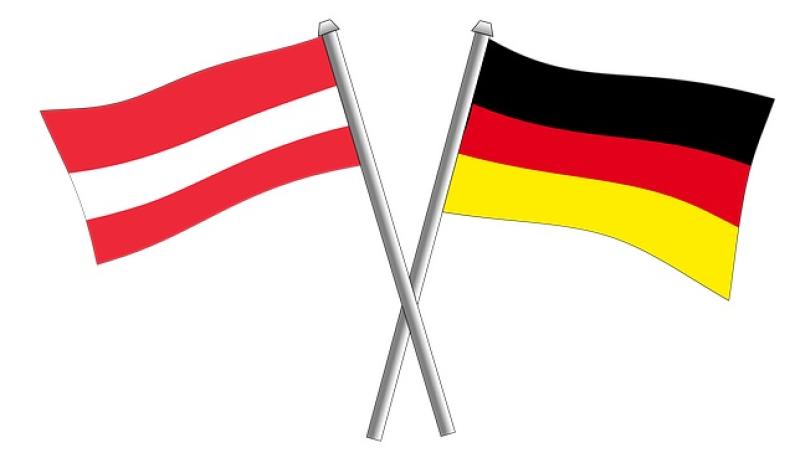
Austria and Germany are neighbouring countries that share many likes and dislikes, but there are also subtle differences in everyday life that can certainly lead to minor misunderstandings.
The border between the two countries is 818 kilometres long and as there are settlements or towns on both sides of the border, people naturally know each other. In Burghausen (Germany), for example, when you drive over the Salzach Bridge you find yourself in Ach, a small Upper Austrian community. From Freilassing (Germany), you can reach the Austrian city of Salzburg in less than 20 minutes and here there is a lot of commuting and traffic, as there is in the whole border region. The cultural differences are minor, particularly close to the border, and even the dialects sound similar, but it is clear which country you are in because of the vocabulary used.
Language connects and separates in equal measure
In both countries, people basically speak the same language: German. But with just a little "hop" across the border from Bavaria to Austria a Pfannkuchen (pancake in Germany) becomes a Palatschinken (pancake in Austria) and whipped cream (Obers) becomes Schlagsahne. An Eierschwammerl is a treat on both sides, but in Germany this mushroom is more commonly known as Pfifferling.
There are many more terms that differ from one country to another, but as a result of the daily commute they are now quite familiar on both sides of the border.
However, there is another difference in the languages that is more noticeable in everyday life. While the Germans like to get to the heart of the matter in a short, concise and often unflattering way, Austrians love to convey things more elaborately. The Viennese love to pack a small insulting jab into as many words as possible to make it sound mild without losing its sharpness. Germans tend to criticise using short and clear wording and then they consider the matter settled.
Not all business is the same
In addition to the differences in communication, there are differences in the way business is carried out between the two bordering neighbours. Whereas Germans prefer to have clear hierarchical structures and strict decision-making processes, decision-making processes in Austria are more fluid. It often takes longer for a decision to be made, but since it has to be revised less often, both cultures end up with the same results.
The degree that work and private lives are separated varies between the countries
In Germany, business meetings take place in designated rooms. A clear business structure distinguishes these business meetings from social gatherings. In Austria, people also like to meet for a business lunch in a café and have no problem if the atmosphere is more relaxed.
In Austria people prefer to use first names
Germans tend to stick to the more formal "Sie" to keep the other person at an emotional distance, at least for a while, whereas in Austria, people tend to address people directly with the confidential "Du"; thus doing away with formal forms of address. This reflects the friendly, cheerful way in which Austrians express themselves and it’s not only reserved for tourism.
and receive an answer within a few hours
- Choose the service you require
- Get a quote
- Confirm and receive your order
FAQ on cultural differences between Germany and Austria
What is the biggest cultural difference between Austria and Germany?
In everyday life, the biggest cultural difference lies with their sense of humour. Austrians tell even the biggest jokes with a serious face and as a German you never really know whether a statement is meant to be serious or funny. On the other hand, Germans have a dry sense of humour that can be very to the point and direct.
Why don't the Austrians want to be known as the "little neighbour"?
Since the end of the Second World War, Germany and Austria have developed very similarly in many areas, but the K&K (Imperial and Royal) monarchy lives on in the hearts of Austrians and with it the desire for a clear demarcation from their neighbour Germany.
Why do Austrians and Germans supposedly not like each other?
At football matches or during a ski race it is clear that the Germans don't actually begrudge the Austrians a victory and vice versa. They are competitive but it is done with a bit of a wink of the eye everywhere, because basically Austrians and Germans get along very well.
Comments
I am half Austrian, half German. May I add comments on this. First of all there is a typo. It's Burghausen (not Burghause). And the Austrian Eierschwammerl is not only Pfifferling in Germany but also "Reherl". This is Bavarian for Pfifferling, so even in Germany we use two different words for this mushroom.
And regarding the "Pfannkuchen" (pancake), 4 different words exist. Pfannkuchen, Eierkuchen (mostly used in the North and East of Germany), Palatschinken (Austria) and Omelette (Switzerland).
Add new comment